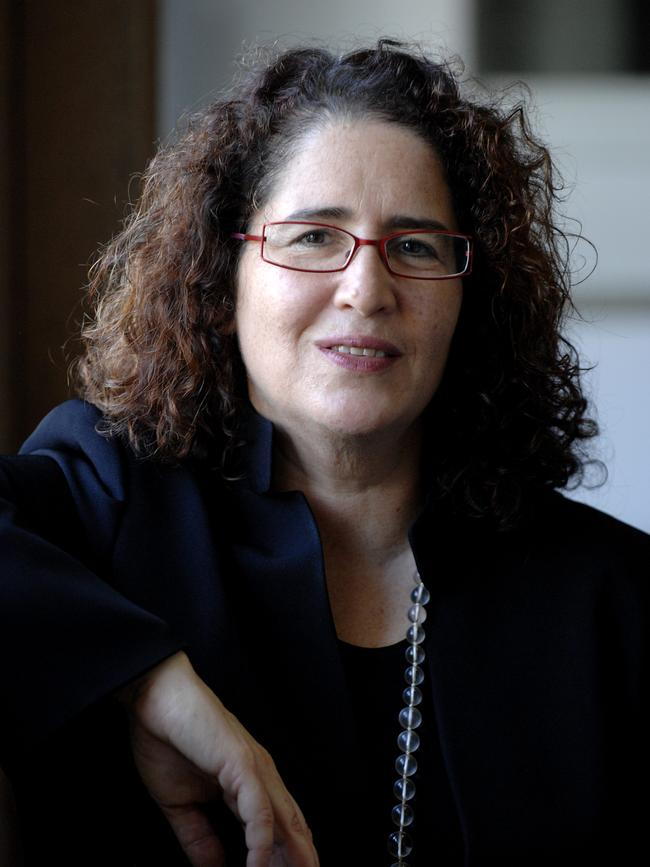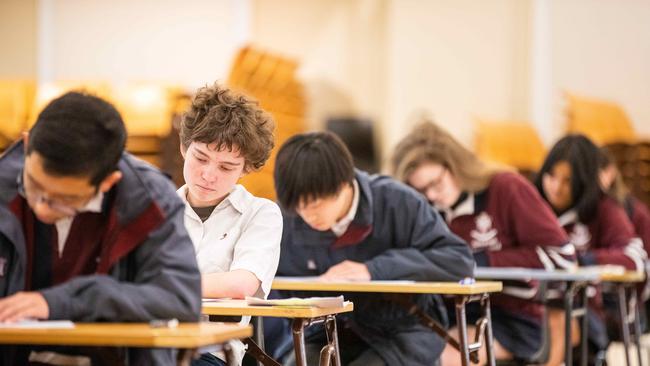Old-school solutions to counter downside of AI chatbots in education
AI chatbots view all information as equal — so how will children learn to discern fact from fiction?

‘Goodbye homework!” Elon Musk, the visionary tech billionaire, gave a bold prediction as the generative artificial intelligence tool ChatGPT was let loose on schools at the start of this year.
The world’s richest man ought to know – he was an early investor in OpenAI’s “large language model” technology that scraped the internet to create the world’s most powerful chatbot.
AI is powering an intellectual arms race, as researchers and entrepreneurs use machine-generated brainpower to fast-track discoveries in the fields of science, technology and medicine that might have taken human minds decades to deliver.
The downside is that children, whose brains are still growing, may have trouble discerning fact from fiction, reality from illusion. AI chatbots view all information as equal – be it harvested from a scientific research paper, a government website, a Facebook post or a smart TV eavesdropping on someone’s private conversation. Dangerously, they can rewrite history, spread propaganda and imperil privacy.

As alarming as it is exciting, the rise of AI will swiftly transform traditional ways of teaching and learning. A ban on students’ use of AI in most public schools has failed to stop a swarm of curious children experimenting with the technology to write their homework, explain mathematical formulae and prepare flashcards for study. Teachers, too, are using chatbots to plan lessons tailored to students’ ages, interests or abilities, and to set and mark homework and assignments.
Chatbot technology such as ChatGPT – adopted by Microsoft – or Google’s rival Bard chatbot – is rapidly being embedded in standard software and social media, from Snapchat to Word. The omnipresence of AI will make it tempting for students to use chatbots as “cheatbots”, to research and write assignments in a manner so convincing that linguists, let alone electronic plagiarism detectors, can’t tell the difference between machine-generated and human-generated content.
Old-school solutions will be essential to ensure that young children learn the fundamentals of literacy and numeracy, and that teenagers become “critical thinkers” who do not simply swallow whatever a chatbot spits out at them.
AI chatbots have an alarming, and sometimes amusing, tendency to “hallucinate” by generating information that sounds plausible but is untrue. Vulnerable children must be taught to question AI, to be curious and sceptical, to verify information, and to use AI ethically.

Dr James Curran, one of the authors of the Australian Curriculum’s syllabus for digital technologies, says children are vulnerable to AI trickery.
“Assuming intelligence in something that is not human is a massive risk, especially for teenagers,” he warned MPs in September.
“They’re at a particularly vulnerable stage in their lives in terms of wanting information, sometimes not wanting to ask the people around them for advice.”
Dr Curran, who heads the Grok Academy, an edtech charity, and directs the National Computer Science School, has added to the chorus of concerns voiced by experts in the fields of education, computer science and intellectual property law.
Fears about the unregulated rise of AI in schools have been outlined in dozens of submissions to a review ordered by the nation’s education ministers, as well as a federal parliamentary inquiry into generative AI this year.
Professor Nicholas Davis, who co-leads the Human Technology Institute at the University of Technology Sydney, wants the federal government to set standards for schools and education departments to procure educational technology – known as edtech – instead of leaving individual schools and teachers to choose their own adventure.
“There are currently no standards for efficiency, effectiveness, performance or pedagogical efficacy of edtech,” he warned the House Standing Committee on Employment, Education and Training during a public hearing in September. “We need to absolutely ensure that generative AI, like all other tech uses, is legal and in line with the expectations of the community when it comes to gathering and using data, particularly for vulnerable individuals such as children. We do need new laws.”
A key adviser on AI to the nation’s education ministers, Associate Professor Leslie Loble – a director of the Australian Education Research Organisation – sees opportunity as well as risks. Intelligent tutoring systems, which adapt lessons based on a child’s interests and level of understanding, show “tremendous promise”, she says. “They are anchored on really well proven concepts like explicit instruction, like cognitive load theory – which is basically [building] … from simple concepts up to more complex ones – and it has a mastery pathway,” she told MPs. “So it’s education first, technology second. We cannot be seduced by the technology. We have to bend the curve of this technology towards improving outcomes, and towards equity.”
One of the harshest critics of generative AI is Julia Powles, Associate Professor of Law and Technology at the University of Western Australia, whose expertise is in privacy, intellectual property and internet governance. She fears that AI will exacerbate the growing divide between children who excel at learning, and those who struggle.
“National outcomes in student literacy and numeracy are in steady decline,” she told the parliamentary inquiry.
“These technologies aren’t some kind of magic silver bullet to everybody’s different, personalised needs. In fact, they take you down rabbit holes quite a way from where the pedagogical basis of learning would be.
“They use these computational techniques but really, crucially, they have no notion of truth. They don’t know what they’re generating. We are potentially letting loose technologies that really distract us about what we know about education, because of a lie of all-singing, all-dancing, magical, personalised learning assistance.”
To predict how AI will change the way we teach and learn, it’s instructional to listen to Elon Musk’s views on the schooling of his own eight children.
“The more you can gamify learning, the better,” he says in a series of interviews streamed online. “If kids can be super engaged in video games, there’s a way for them to be super engaged in education as well. Conventional education should be massively overhauled. It shouldn’t be like this huge chore. Make it entertaining!”

It is telling, however, that Musk insists his own screen-keen children spend more time reading than gaming.
“The biggest battle I have is restricting their video game time, because they want to play all the time,” Musk told his biographer Ashlee Vance.
“The rule is they have to read more than play video games.”
Without a solid foundation in literacy and numeracy in primary school, AI could render reading and writing redundant as an entire generation grows up ordering voice assistants to deliver information on demand.
In the next few years, schools will need to focus on “old-school” techniques of teaching reading through phonics, and rote learning of times tables, to ensure that young children master the foundational skills of literacy and numeracy that served Elon Musk so well as a bright yet bored child who “read everything that I could get my hands on”.
Once children have mastered the foundational knowledge taught in the early years of primary school, teachers will curate the content of AI-generated lessons to bring learning in other subjects – like history, geography and science – to life.
Teenagers will immerse themselves in virtual reality, on AI-generated excursions to visit ancient Egypt, walk on the moon or fly like a bird through the Amazonian rainforest.
AI tutors will help struggling children catch up with classmates while challenging the most curious or academically gifted. It is critical that edtech is evaluated and approved by education and child development experts, with built-in quality and privacy controls.
High schools may well end up as social hubs for teenagers, who will complete AI lessons online and then come to class to analyse and debate what they learnt at home – essentially flipping the concepts of classroom teaching and homework.
Critical thinking and creativity will become the priorities of schooling systems, which must nurture children’s humanity while training them to command and control AI.
Cutting-edge research into children’s brain development will demand a renaissance of handwriting, art and music, of doodling and daydreaming, to foster children’s mental wellbeing and build their biological brainpower.
To avoid AI cheating, essays, exams and assignments will be completed in classrooms, using pen and paper or with the internet switched off. To test knowledge, students will be required to answer questions and explain concepts verbally.
Ironically, AI is bringing school education back to the future.



To join the conversation, please log in. Don't have an account? Register
Join the conversation, you are commenting as Logout